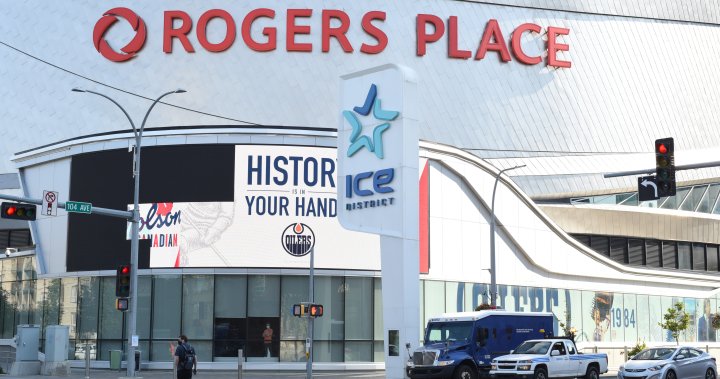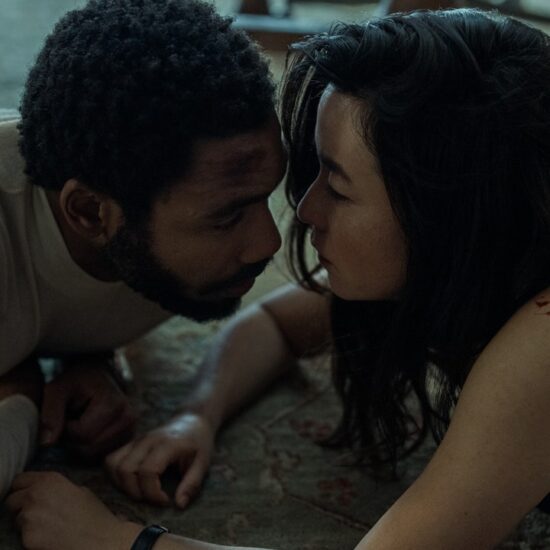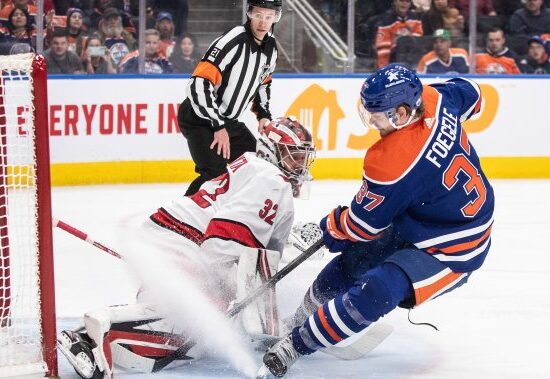
On Tuesday, Premier Danielle Smith announced an arena and events centre deal for Calgary that sees $330 million in provincial money go towards that project.
Edmonton Mayor Amarjeet Sohi said his city is happy for Calgary, but noted Edmonton’s Rogers Place and surrounding Ice District didn’t get any provincial government funding a decade ago.
“We asked the province for support and we were told we were not getting any,” said Sohi, who was a city councillor at the time.
Current Edmonton city councillor Andrew Knack questions the Calgary plan.
“Right now, municipalities across the province, not just the City of Edmonton, have massive infrastructure needs and this feels very much like a one-off,” he said.
More than one-third of Edmonton’s downtown arena project is funded through tax increment financing, also known as a community revitalization levy (CRL).
The Government of Alberta introduced Community Revitalization Levies to help cities and towns stimulate activity and economic growth in under-developed areas in their communities.
With a CRL, once an arena location is chosen, a city maps out an area that would reap the economic spin-offs from the facility.
The new project typically draws more development in the form of restaurants, hotels and other amenities, increasing property tax revenue around the arena.
The new revenue that comes in is then used to directly pay down the debt of the project, rather than go toward the city’s coffers.

Knack wants to know other major infrastructure investments are going to be made in municipalities across Alberta.
“When you compare the type of funding that the City of Calgary is getting and essentially what the City of Edmonton didn’t get — it’s hard not to look at that and sort of shake your head a little bit and feel, frankly, a little bit cynical.”
The election is expected to come down to Calgary: pollsters say the UCP has rural Alberta locked down and the NDP will likely maintain its traditional grip on Edmonton ridings. Recent polls suggest a dead heat between the two parties in Calgary, with a significant portion of the electorate undecided.
Knack said he don’t think any order of government should be able to make such big announcements so close to an election period — the writ drops in Alberta next week — noting the federal government does it as well.
“If we’re going to talk about that kind of investment, wouldn’t it be better saying, ‘Hey, we could potentially end homelessness in this city with an investment of about $330 million.’ Would that be the right thing?”
Smith said last October that the Saddledome has served the community well but can no longer compete with new buildings across North America for events, concerts and sports.

Smith stated the $330 million won’t go directly towards Calgary’s new arena but rather, the surrounding infrastructure.
The premier also said funding the Calgary project will even out how much the province is spending on capital projects in Alberta’s two major cities: she said the budget put $3 billion towards capital in Edmonton and $2.9 billion in Calgary.
“There’s been lots of proposals about how we can assist in revitalising Calgary, especially in the downtown area, and we felt that this would be the absolute best way to do it because it is investing in public infrastructure, it’s helping to build out an entire district,” Smith said on Tuesday.
Sohi said he would like to talk with the next premier to see if there’s a way for the province to also support the area around Rogers Place – something Smith said she would be willing to do.
“We also know that in Edmonton they have a Stage 2 project that they want to announce for the Oilers group,” she said on Tuesday.
“So we’re prepared to have a conversation as well if there’s additional work that we need to do in Edmonton so that both of our downtowns in Calgary and Edmonton can grow together.”
The plan for Ice District Phase 2 would include several towers on the site of the former Baccarat Casino and to the north of the arena, between 105 and 106 Avenues and 101 and 105 Streets.

Smith said Tuesday she has spoken with a member of Edmonton’s city council but did not say who.
“I have talked to a council member in Edmonton to let them know that we understand that when the Edmonton arena came together, it was a different group of players, different place, different time, different agreement,” she said, adding it was a different time and the city and Katz Group came to an agreement on its own.
“Now they’ve got significant issues in Edmonton for the Oilers Phase 2 expansion to go ahead. They do need to have some assistance with infrastructure, as well as there’s a Boyle Street facility that is going to be moved,” she said, making reference to the Boyle Street Community Services facility across the street from Edmonton’s arena that offers help to the city’s homeless population.
Boyle Street aims to develop the health facility and headquarters at 107A Avenue and 101 Street after receiving a $10 million donation from the Edmonton Oilers Community Foundation.

“There’s a few things that we can do to assist Edmonton,” Smith said.
“We want both of our cities have vibrant downtowns and so we stand open, ready to help if there are specific infrastructure asks in Edmonton.”
While some argue this deal isn’t fair for Edmonton taxpayers, the NDP said it’s not even sure it’s fair for Calgary residents either.
Opposition Leader Rachel Notley said Smith has openly and directly tied the $1.2-billion project to the ballot box and is now obligated to give voters as much information as possible so they can make an informed decision.
That includes, said Notley, the secret financial details of who is on the hook for what in the deal involving the province, the City of Calgary and the owners of the Calgary Flames hockey team.
“It’s a confidential agreement between all three parties that outline additional financial exposure, additional financial obligations and opportunities for all three parties, including the potential of more exposure for the public and for taxpayers,” Notley said.
“People on my team were advised (about) that by officials today,”she said Wednesday.
“When we asked for more detail (and) if we could get a copy of the agreement, we were told no. All parties have agreed that agreement must remain confidential for six to eight weeks.”
The election campaign begins Monday, and the six-to-eight-week deadline takes it past the May 29 polling day.

“I am calling on Danielle Smith to make those details public,” said Notley.
“Danielle Smith is the only one of those parties who suggested that support of this deal should be on the ballot. And if she’s going to do that, then she has to be sharing that information. That’s all there is to it.”
Knack said he just wants to better understand what’s next.
“I would hope that they would want to sit down with Edmonton city council, Edmontonians and talk about what are our biggest infrastructure priorities right now.”

— With files from Ryan Kessler and Slav Kornik, Global News and Dean Bennett, The Canadian Press
© 2023 Global News, a division of Corus Entertainment Inc.














